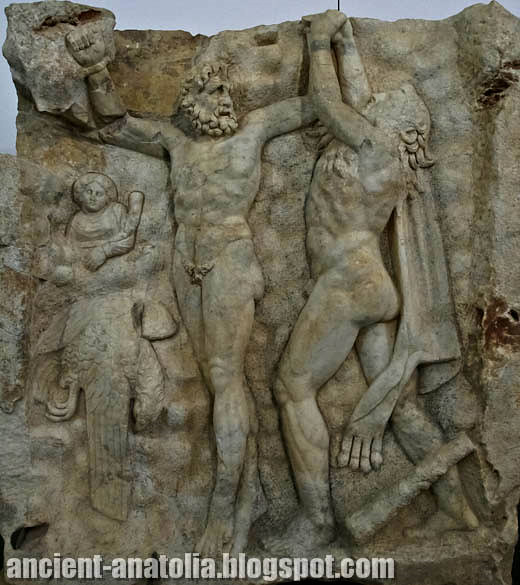
Relief at Sebasteion: Ancient Aphrodisias School of Sculpture...
Prometheus is screaming in pain. Zeus had given him a terrible punishment for giving fire to man: he was tied to the Caucasus mountains and had his liver pecked out daily by an eagle. Herakles has shot the eagle and is undoing the first mannacle. He wears his trade-mark lion-skin and has thrown his club aside. A small mountain nymph, holding a throwing stick, appears among the rocks above. - Museum of Aphrodisias, Turkey.